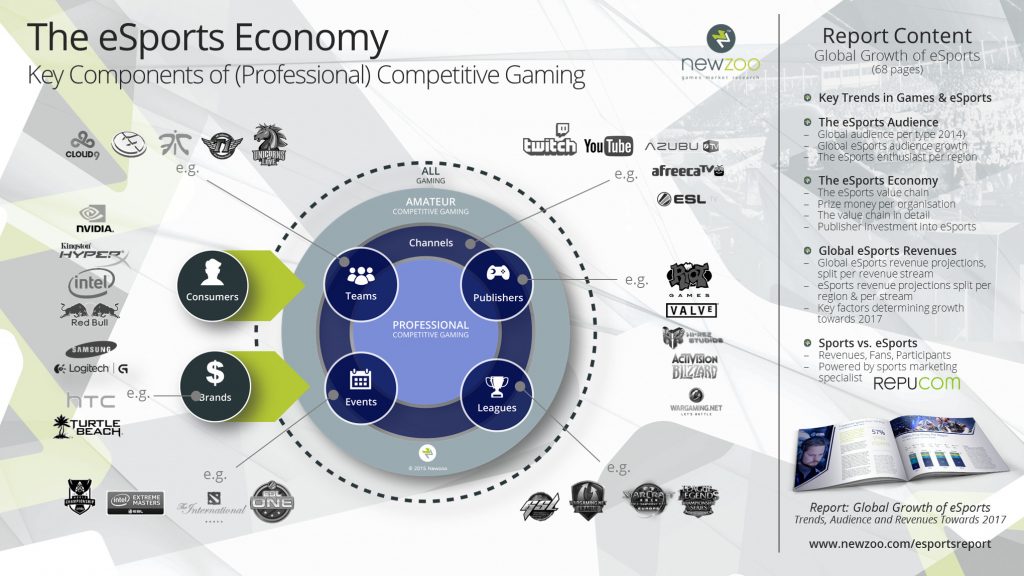
The Esports Ecosystem A Complex Network
The esports ecosystem is a complex network of interconnected elements that contribute to the growth and success of the esports industry. It encompasses a wide range of stakeholders, from professional players and teams to sponsors, broadcasters, and fans.
Key Components of the Esports Ecosystem
- Professional Players: These skilled gamers compete at the highest level, representing teams and striving for victory.
- Teams and Organizations: Esports organizations provide professional players with support, training, and resources.
- Tournaments and Leagues: These events offer platforms for players to compete and showcase their skills.
- Sponsorships and Partnerships: Brands and companies invest in esports to reach a younger, engaged audience.
- Streaming Platforms: Platforms like Twitch and YouTube Gaming allow fans to watch live matches and interact with players.
- Media and Content Creation: Esports media outlets and content creators produce news, analysis, and entertainment content related to esports.
- Technology and Infrastructure: Advanced technology and infrastructure are essential for hosting esports events and providing a high-quality viewing experience.
- Fans and Community: The passionate fanbase of esports plays a crucial role in driving the industry’s growth.
The Interconnectedness of the Ecosystem
The various components of the esports ecosystem are interconnected and interdependent. For example, professional players rely on teams and organizations for support, while teams and organizations depend on sponsorships and partnerships to fund their operations. Streaming platforms rely on content creators to produce engaging content, while content creators often rely on esports organizations for access to tournaments and players.
The Impact of the Esports Ecosystem
The esports ecosystem has had a significant impact on various aspects of society:
- Economic Growth: Esports has generated billions of dollars in revenue, creating jobs and driving economic development.
- Cultural Influence: Esports has become a cultural phenomenon, with players and teams achieving celebrity status.
- Technological Advancements: Esports has contributed to advancements in gaming technology, hardware, and software.
- Social Connection: Esports communities provide a sense of belonging and social interaction for players and fans.
As the esports industry continues to grow and evolve, the esports ecosystem will become even more complex and interconnected. Understanding the various components of this ecosystem is essential for anyone interested in the esports industry.



